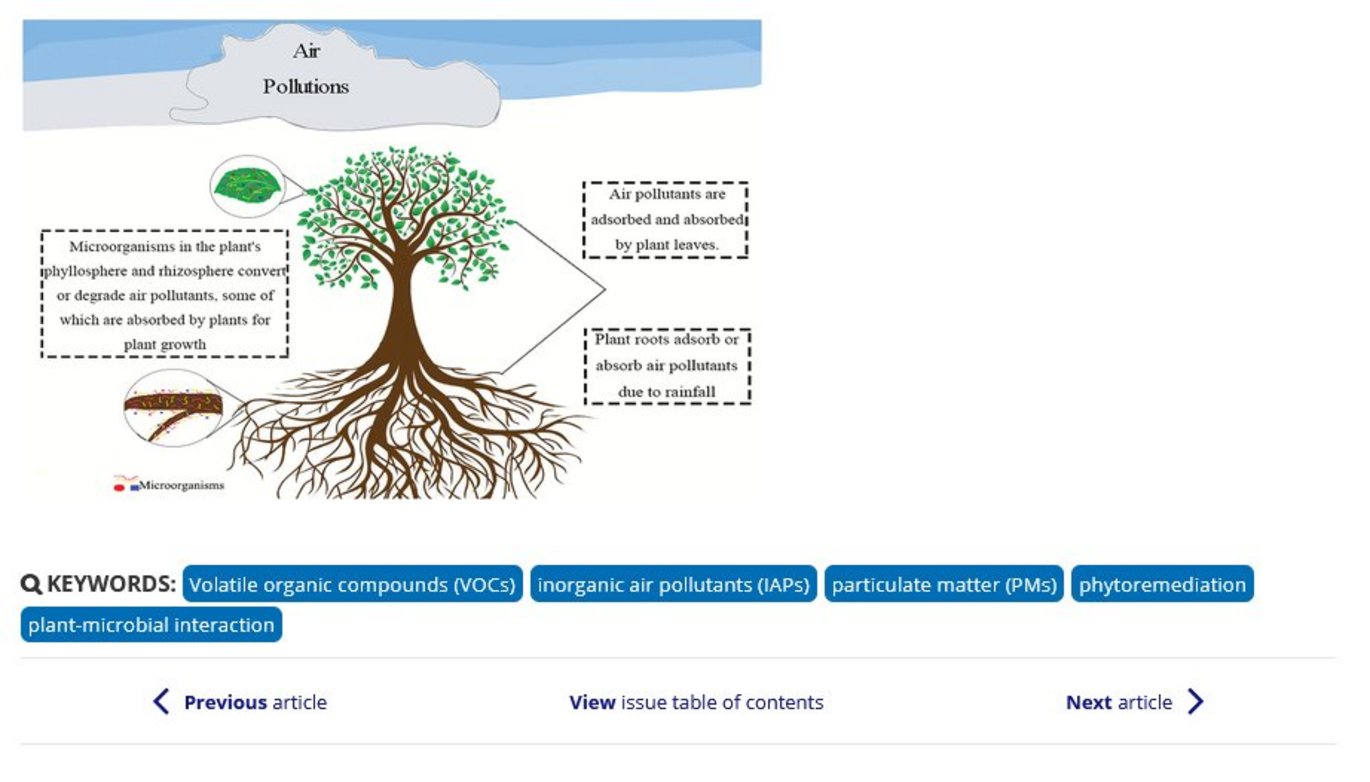Reduction and control of air pollution: based on plant-microbe interactions
New publication by Li Y, Chen X, Sonne C, Lam SS, Yang Y, Ma NL et al.

Abstract:
Economic development brings environmental challenges of which air pollution poses serious risks to humans and ecosystems. Air pollutants include volatile organic compounds (VOCs), inorganic air pollutants (IAPs) and particulate matter (PMs). Plant leaves may reduce such air pollution through adsorption and stomatal absorption. At the same time, air pollutants enter soil and root zones due to its content in rain and leaf fall. Microorganisms degrade and transform air pollutions. However, the efficiency of phytoremediation and bioremediation is slow and the use of plant-microbe interactions may therefore greatly enhance the efficiency of phytoremediation. The release of chemicals from plants leads to a mutual interaction with the microbiome that promotes the growth of the plant itself, thus enhancing degradation and detoxification of interleaf and inter-root air pollutants. Here we review the current research progress on combined plant-microbe action and discusses the interaction between plants and associated microorganisms while providing perspectives for future research in phytotechnologies.
